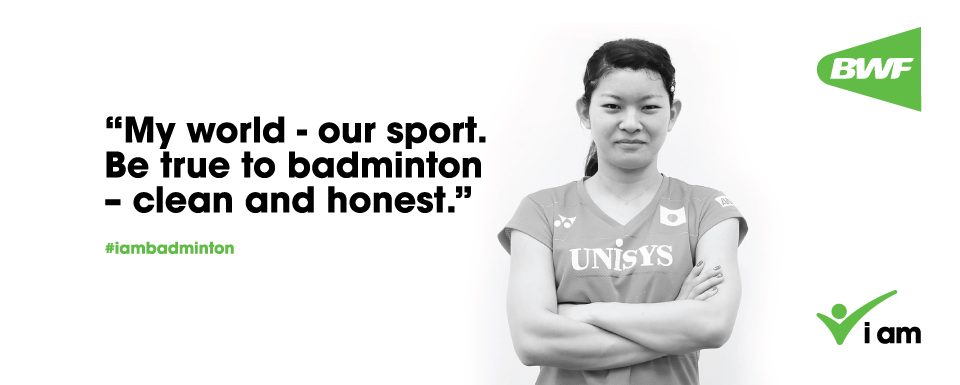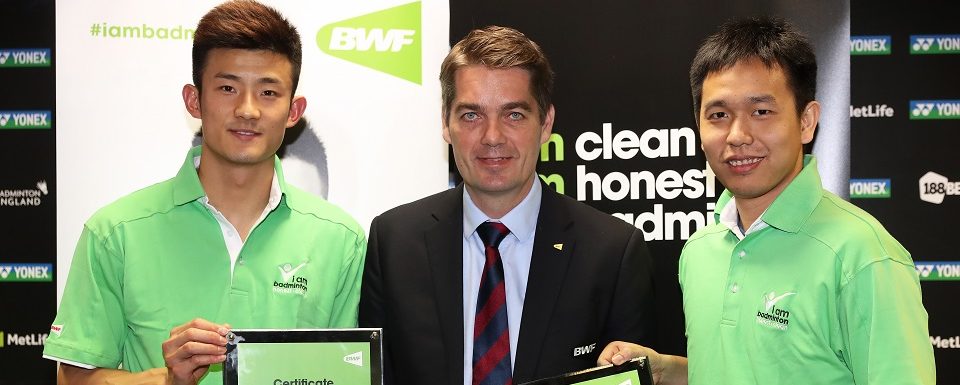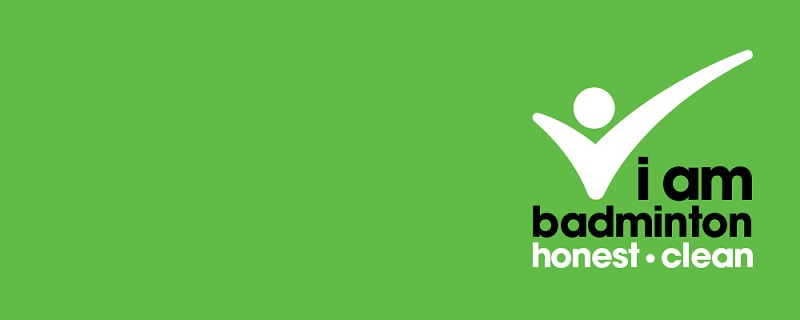Anti-Doping Overview
Every athlete has the right to compete in “clean and fair sport“. Doping, match fixing and corrupt behaviour are threats to the integrity of sport.
Doping is one or more of the following Anti-Doping Rule Violations (ADRVs):
- Presence of a prohibited substance in an athlete’s sample;
- Use or attempted use of a prohibited substance or method;
- Refusing to submit to sample collection after being notified;
- Failure to file athlete whereabouts information and missing tests;
- Tampering with any part of the doping control process;
- Possession of a prohibited substance or method;
- Trafficking a prohibited substance or method;
- Administering or attempting to administer a prohibited substance or method to an athlete;
- Complicity in an Anti-Doping Rule Violations (ADRV);
- Prohibited association with athlete support personnel who has engaged in doping.
- Acts by an athlete or other person to discourage or retaliate against reporting to authorities.
More Information
Doping and match-manipulation (fixing a match or part of a match) are against the spirit and essence of sport. Doping and match-manipulation are the biggest threats to sport. They severely damage the integrity, image and value of sport.
The use of prohibited substances or doping methods to enhance performance is fundamentally wrong and is a threat to sport.
Drug misuse can be harmful to an athlete’s health and to other athletes competing in the sport.
We all have a responsibility to protect the rights of clean and honest athletes. Having clean athletes (free from doping) and fair competitions (free from manipulation) is what we must continue to have in badminton.
The BWF Integrity Programme is about promoting healthy, clean and fair badminton competitions.
More Information
– BWF’s “i am badminton” integrity campaign
– Integrity Overview – the Spirit of Sport and Sports Values
The consequences of doping can be severe and athletes who take prohibited substances put themselves at significant risk. These are some of the consequences of doping:
Health Consequences
There are significant dangers of doping to your health. Substances and methods used by athletes are developed for patients with disease – not for healthy people. This fact, together with the fact that 1) athletes may use substances without the advice of a health profession, 2) may use higher doses of a substance than would be advised and 3) may use the medications in combination with other substances, means that the athlete is putting their health in danger.
Sanctions / Punishments / Exclusion
Being banned from all sport for a minimum of four years will have a huge impact on an individual, their daily life, their family and their social network.
Social Consequences
Studies show that those who are found guilty of a doping violation suffer greatly through the exclusion from the sporting world. Apart from feelings of shame, guilt and the stigma associated with doping, the athlete’s family and social network will be affected.
More Information
Athletes have many responsibilities in sport related to anti-doping. They are personally responsible for:
- Knowing about the BWF Anti-Doping Regulations and the Codes of Conduct – and to follow them.
- Understanding the consequences of failing to follow the BWF Anti-Doping Regulations.
- Everything they eat, drink and use (such as medications).
- Making sure that medications do not contain prohibited substances. Telling their prescribing doctor that they are an international level athlete.
- Asking their doctor to check if there are prohibited substance in medications the doctor is prescribing.
- Being available and cooperating in the sample collection process (urine and/or blood).
- Reporting incidents that could be doping in sport.
- Cooperating with investigations into doping in sport.
More Information
Athletes are responsible for everything they ingest – everything they eat, drink or take. This includes food, drink, vitamins, other food supplements and medications.
The principle of “strict liability” applies in anti-doping – if a prohibited substance is in an athlete’s body, the athlete is responsible for it.
More Information
The Prohibited List is a list of substances and methods which are prohibited for athletes.
Substances and methods are classified by categories in the list, for example – steroids, stimulants, masking agents. Some substances are prohibited in-competition and others are prohibited at all times (both in-competition and out-of-competition). Some substances are prohibited for particular sports.
The Prohibited List is updated every year and the new list comes into effect on 1 January of each year. The list is usually available in October of each year, ready for the following year.
It is the athlete’s responsibility to make sure that no Prohibited Substance enters the athletes body and that no prohibited method is used. The “strict liability” principle applies. If a prohibited substance is found in an athletes body, they are responsible for that.
More Information
Before you take any medication, make sure you check with your doctor that it does not contain a prohibited substance.
Athletes are responsible for everything they ingest – everything they eat, drink or take. This includes food, drink, vitamins, other food supplements and medications.
Many of the substances on the Prohibited List do not have medical application or benefit, but for those that do, the Prohibited List only contains the generic names of the pharmaceutical substances. The list does not contain brand names of medications, which vary from country to country.
BWF only allows an athlete to use a prohibited substance for medical reasons if the athlete has a valid Therapeutic Use Exemption (TUE) for the substance that BWF has granted or recognized.
More Information
– Therapeutic Use Exemptions (TUE)
Useful Online Databases*
The following online country-specific drug reference databases are also available for checking the status of a medication bought in that country.
- GlobalDRO* (for Canada, UK, USA, Japan and Australia)
- GlobalDRO link to other countries’ online databases*
* NOTE – the BWF and WADA do not take responsibility for the information provided on these websites.
You can find out more about Therapeutic Use Exemption (TUE) from that section of our website.
But briefly, players (badminton / Para badminton) may become ill or have conditions that require them to take medications. If an athlete is required to take medications and the medications contain substances which are on the World Anti-Doping Prohibited List, the athlete must apply for a Therapeutic Use Exemption (TUE).
If approved, this will give that athlete the authorization to take the medications that he/she requires.
Before taking any medication that contains a prohibited substance, the athlete must complete the TUE application process and be granted the TUE. See more in formation on the TUE pages of this website.
More Information
Athletes should take extreme care if they decide to take dietary supplements. If you are a competition badminton player, you should get advice from your dietitian, National Federation or national Anti-Doping Organisation on the risks and benefits of of taking dietary supplements.
Supplements include:
- Protein shakes
- Energy drinks
- Herbal remedies
- Vitamins
More Information
If you are a competition athlete, we would strongly advise you not buy supplements online. In general we advise that athletes take extreme care when considering to take supplements.
There has been a significant number of positive tests resulting from the misuse of supplements or poorly labelled dietary supplements.
There is little or no scientific evidence that a healthy and balanced diet needs supplementing. A change in your diet or training programme could give you better results. It is important to seek advice from your doctor or a sports dietitian about whether you really need to take supplements or not.
More Information
If you are a competition badminton player entering tournaments at a national or international level, you can be tested. This is just part of sport, and an activity that happens daily to monitor athletes and to deter athletes from taking prohibited substances to cheat and try and get an unfair advantage.
Doping control can be a stressful experience the first time an athlete is selected. So if you are notified to be tested, accept this as a part of your sports competition. It does not necessarily mean we think you are cheating and you may not have been specifically targeted. Don’t feel guilty or stressed about being selected. This is just part of what you need to do to participate in sport.
Ultimately, this is part of protecting the rights of clean athletes.
BWF and National Anti-Doping Organisations have testing programmes.
- Testing can take place anywhere / anytime.
- Testing can take place at competitions or between competitions – at your training venue or at your residence.
- Urine and blood may be taken as samples for analysis.
- Selection for testing can be random or target particular athletes.
- Top world and national players may be asked to provide “whereabouts information”
- You will be told if you need to provide whereabouts about where they train, compete, live for every day of the year.
More Information
Athletes can be tested anywhere and at any time – at your usual training, in a tournament (in competition), at home or during a training camp. “No notice” testing is essential for a testing programme.
- In-competition testing – this is testing that takes place during a competition.
- Out-of-competition testing – this is testing that is done outside a competition period – your training hall, home training camp.
More Information
BWF has a testing programme where it collects more than 1000 samples (blood and urine) per year.
BWF has two testing pools. These are groups of athletes who are regularly tested over the 12 month period – both in-competition and out-of competition. The Registered Testing Pool (RTP) is generally for top level international athletes and the Testing Pool (TP) is for athletes who have been selected because they will probably reach top levels at some time in their career.
BWF also has an Athlete Biological Passport Programme. More than 25 athletes are regularly tested using blood sampling and they have a passport whereby biological markers are compared each time the sample is analysed. This biological profile is built up over time and is a way of tracking and determining if a prohibited substance may have been used at a particular time.
If BWF selects you to be a part of one of these testing pools, then BWF will contact you and you will sign some paper and agree to provide whereabouts information – 365 days a year.
More Information
– Whereabouts Information – for those on a testing pool
Yes, BWF has an Athlete Biological Passport Programme with more than 25 athletes on this programme. These athletes are regularly tested by taking blood samples (and urine) to monitor biological markers and to identify whether the athlete has taken any prohibited substance.
More Information
If you are part of a Registered Testing Pool (RTP) or a Testing Pool (TP), then you need to provide whereabouts information.
You will now if this is required. If you are selected to be on the RTP or TP, then BWF will contact you and you will need to complete some forms and sign a declaration to show that you know and understand what the programme is about, and that you will comply with the programme.
More Information

























